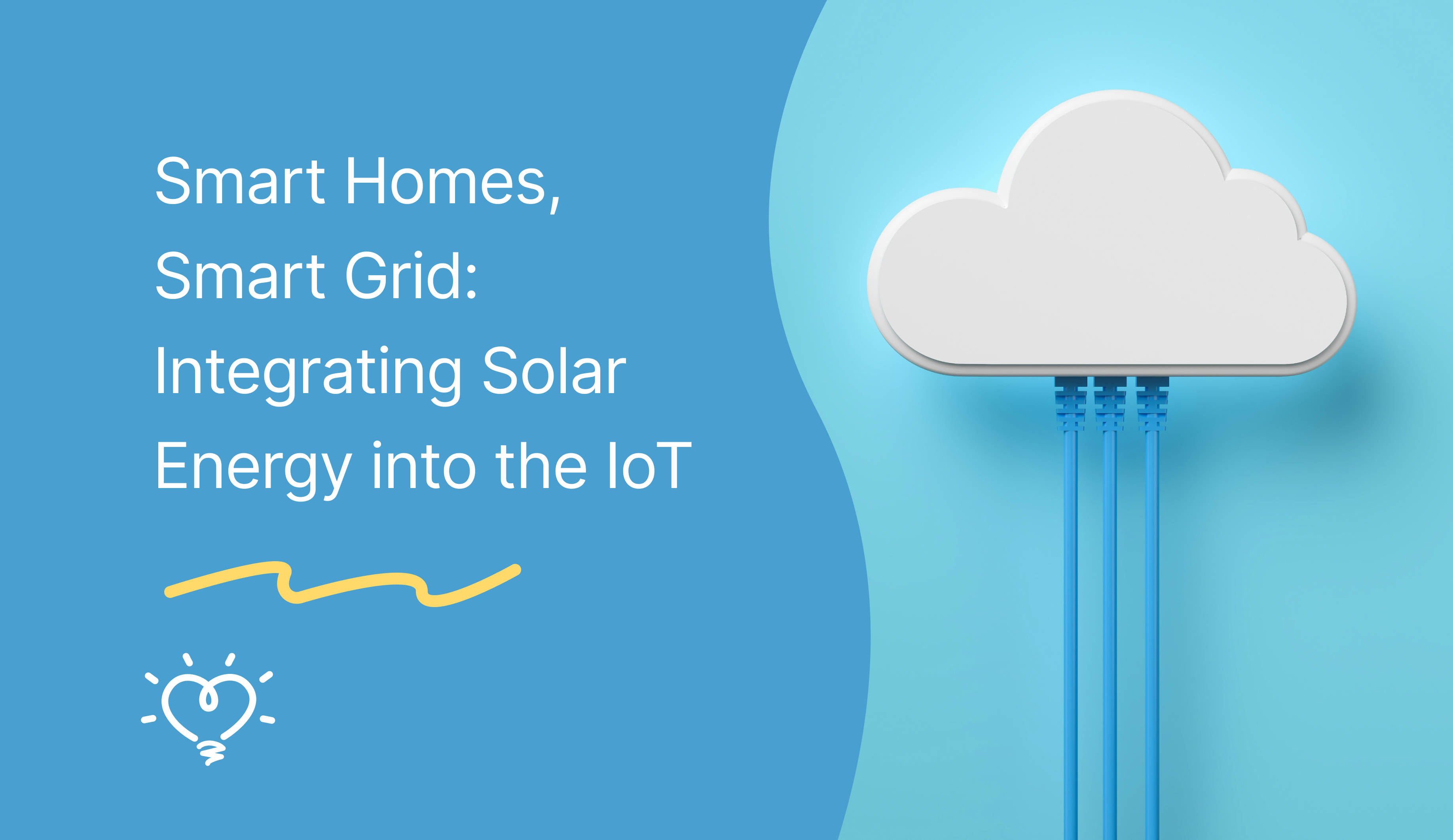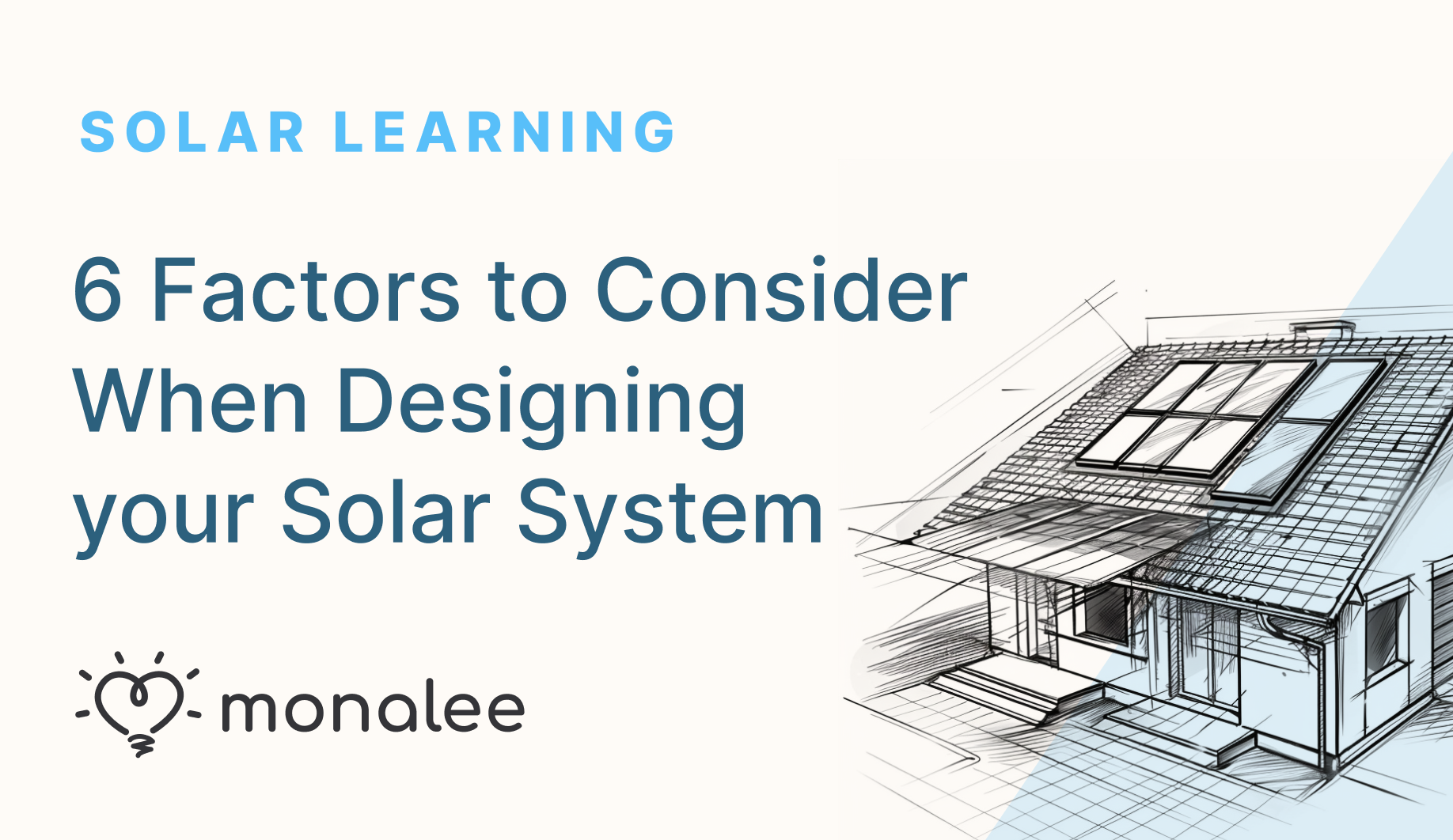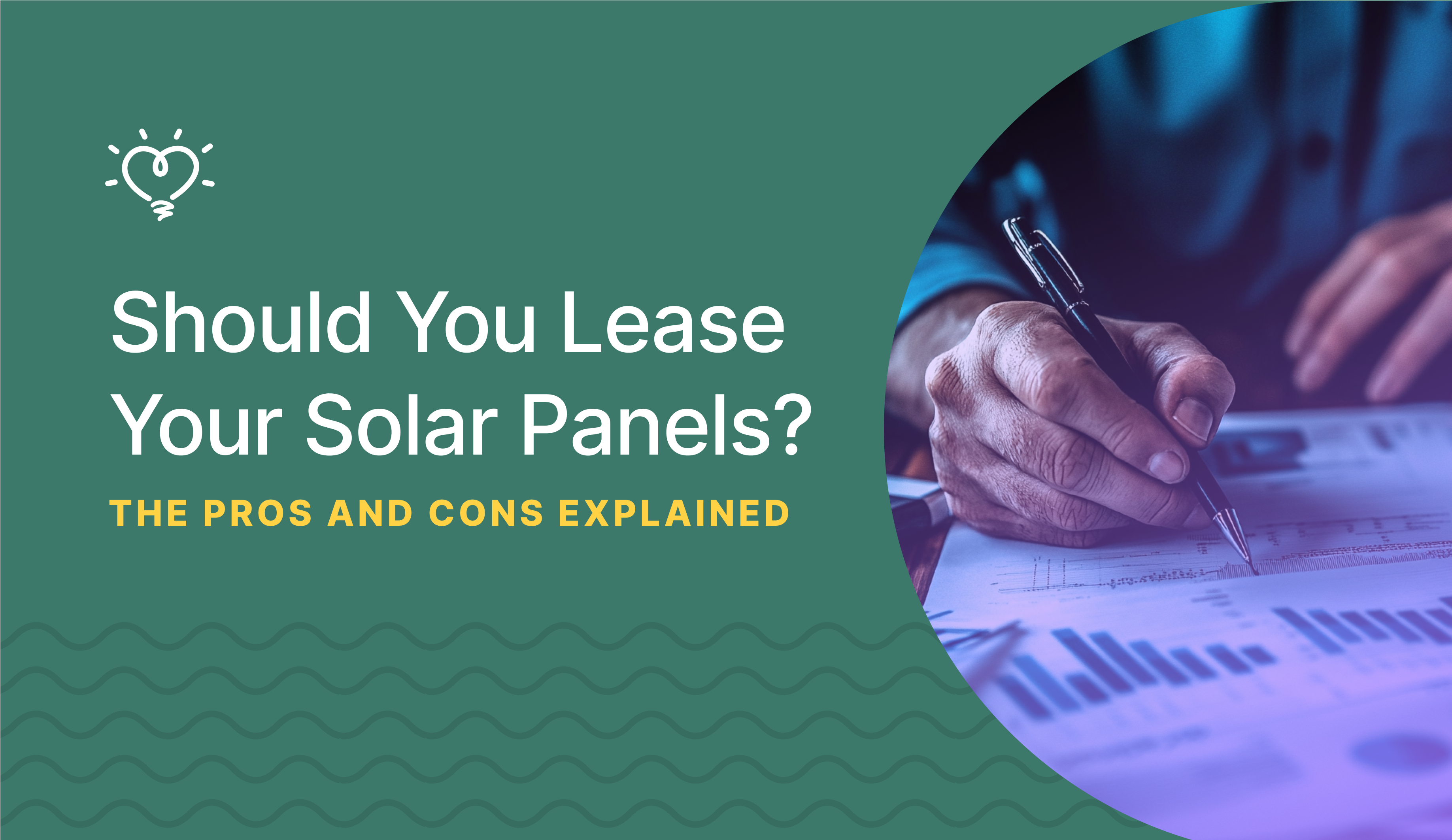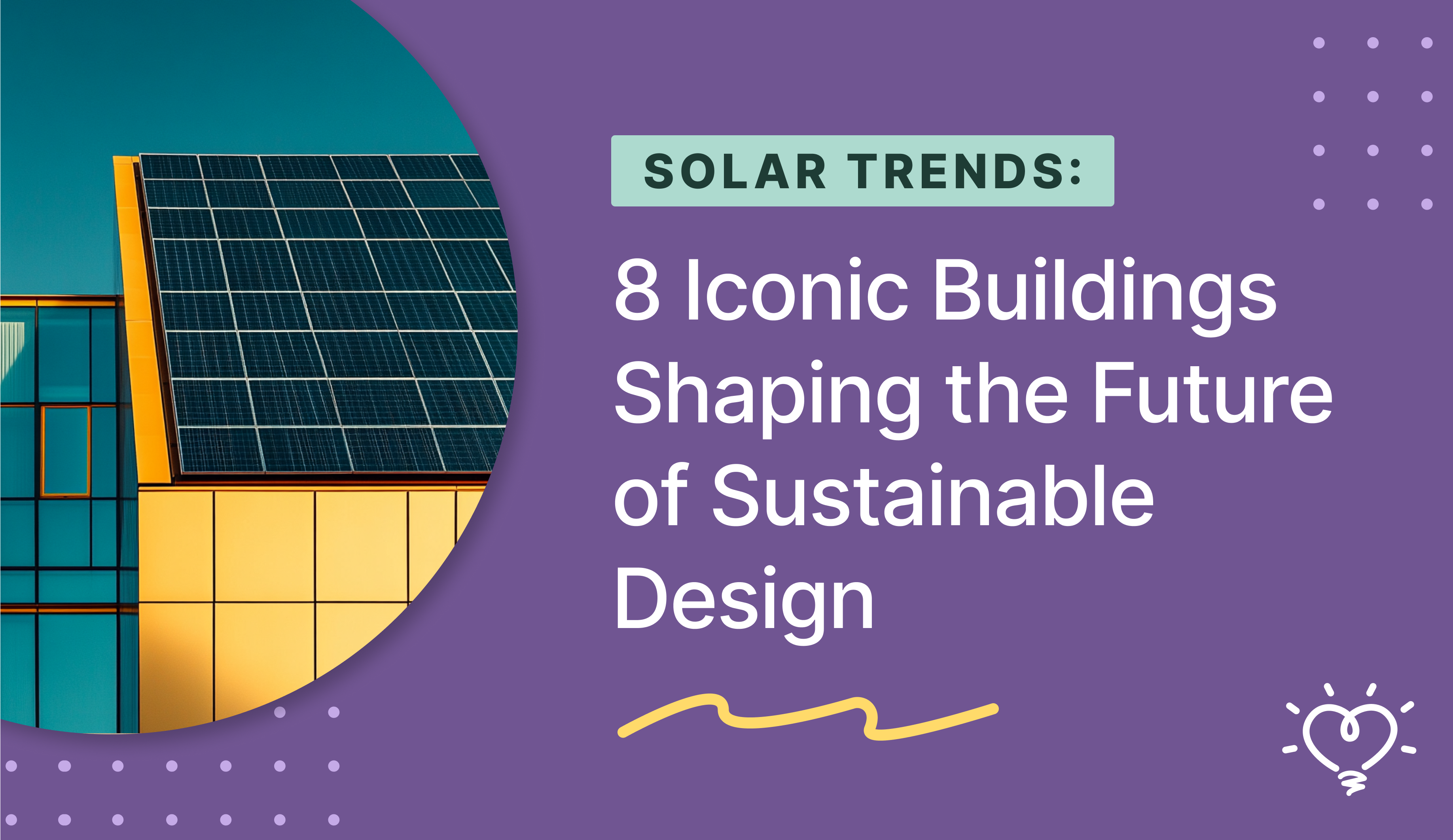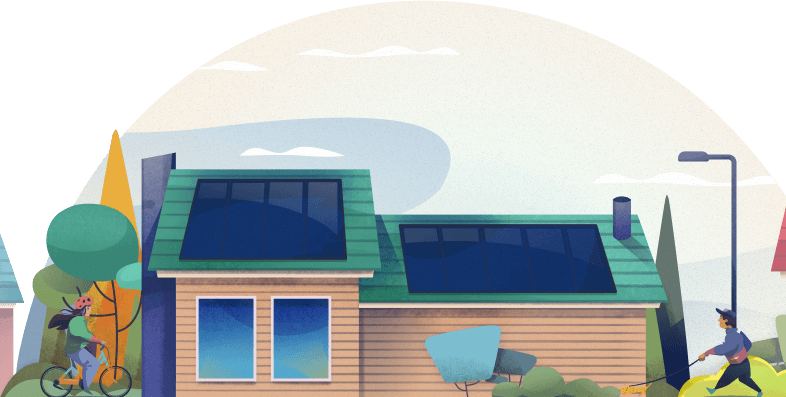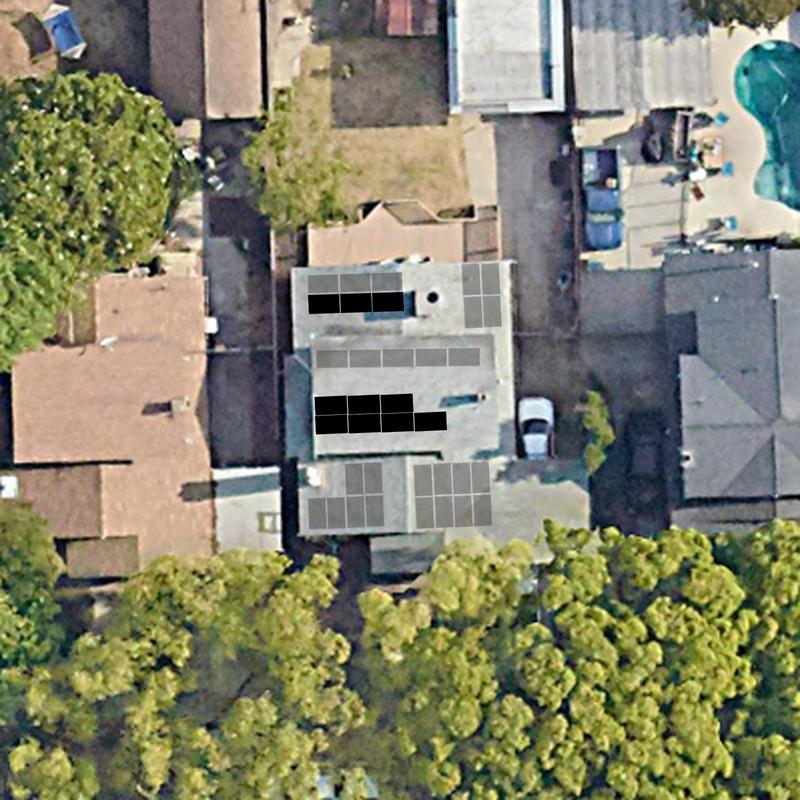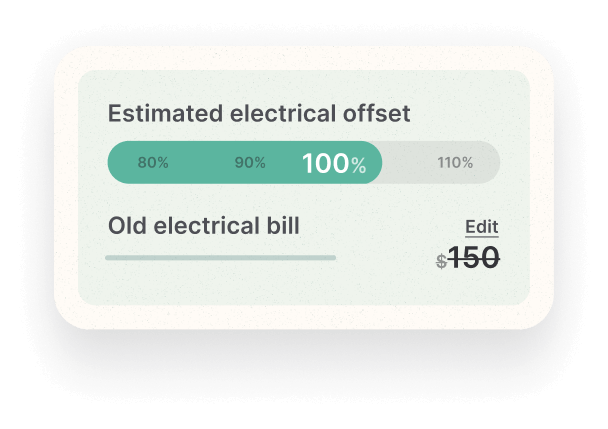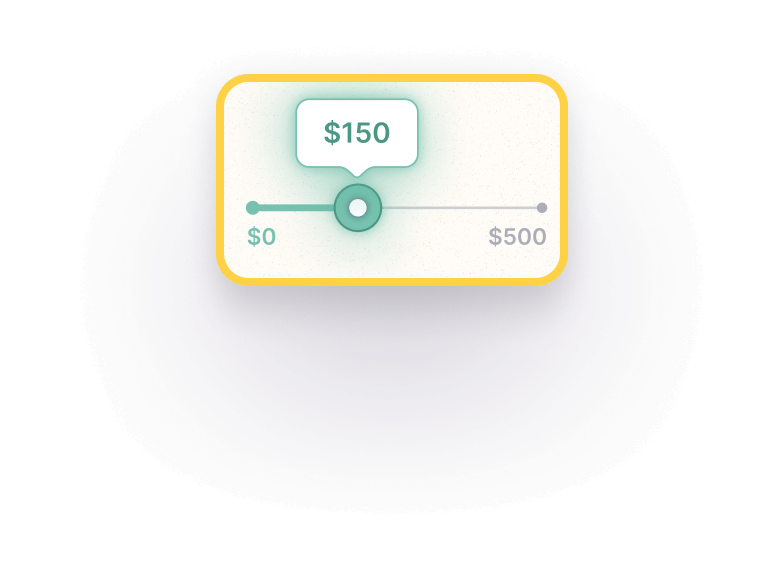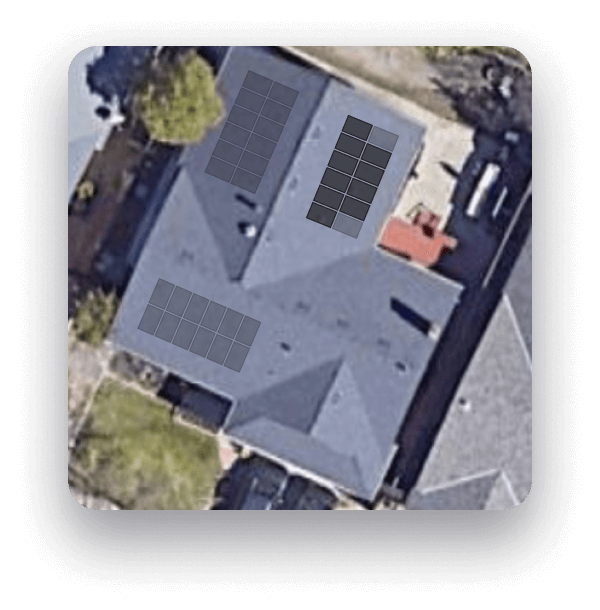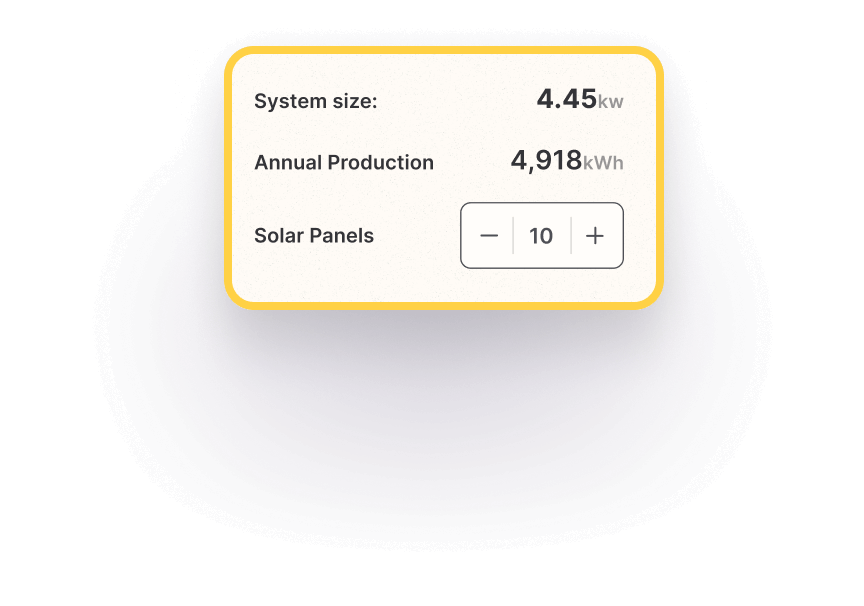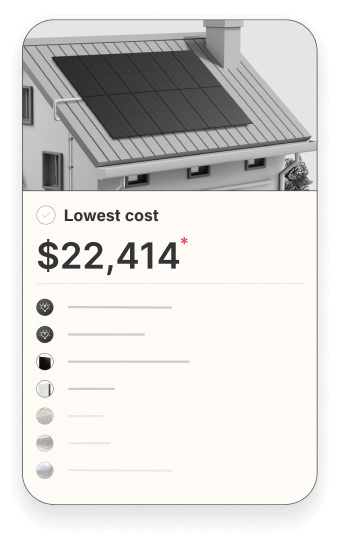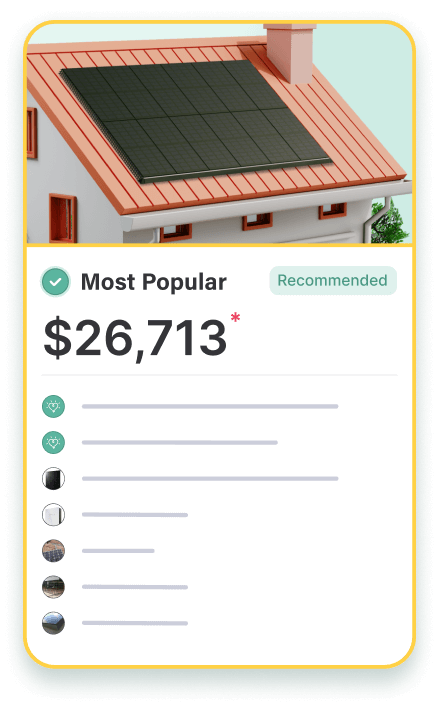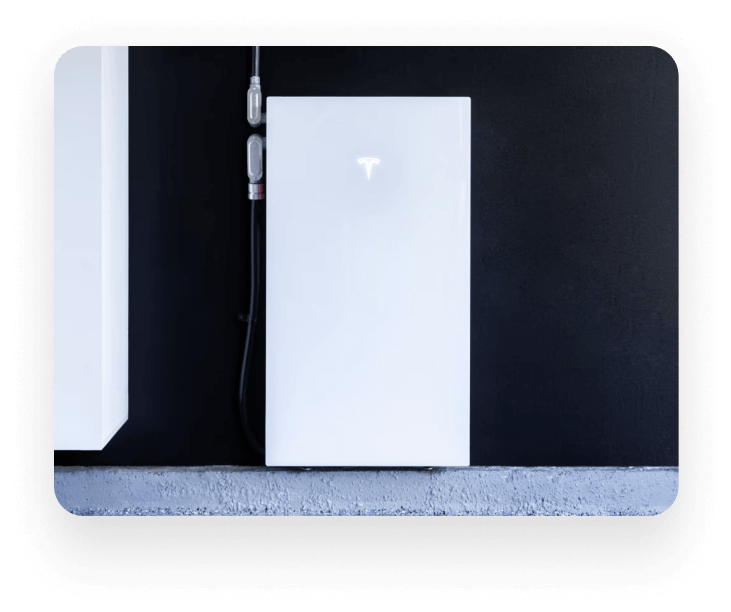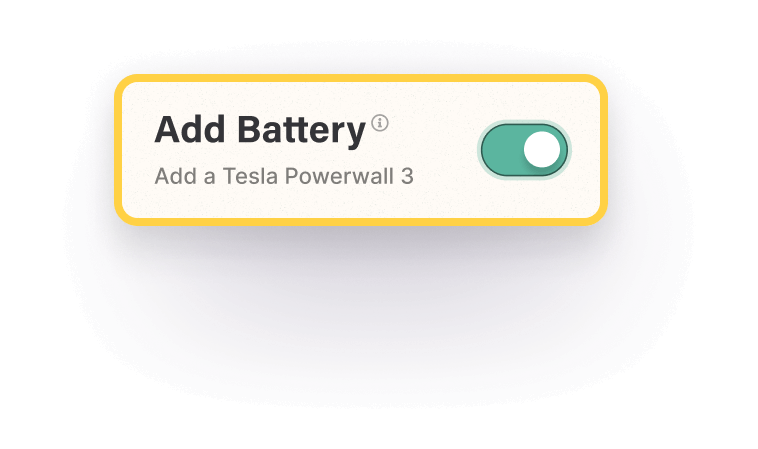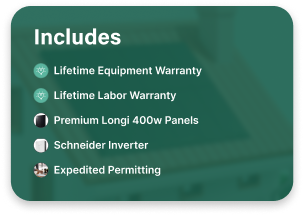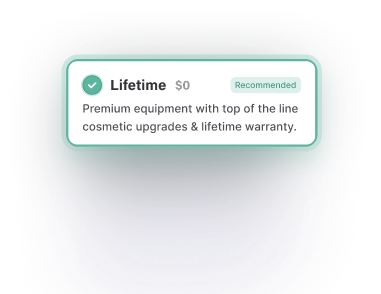Increased efficiency, enhanced decision-making, and cost savings are just a few of the benefits.
Despite current challenges facing the industry, solar adoption remains on the rise. In fact, solar power is currently the fastest-growing economy in the nation and the fastest-growing renewable energy source. Innovations in solar panel design are increasing efficiency, while AI integrations are cutting soft-costs significantly, resulting in lower installation costs.
In this article, we’ll explain what the IoT is in relation to solar energy and how these technologies benefit your home.
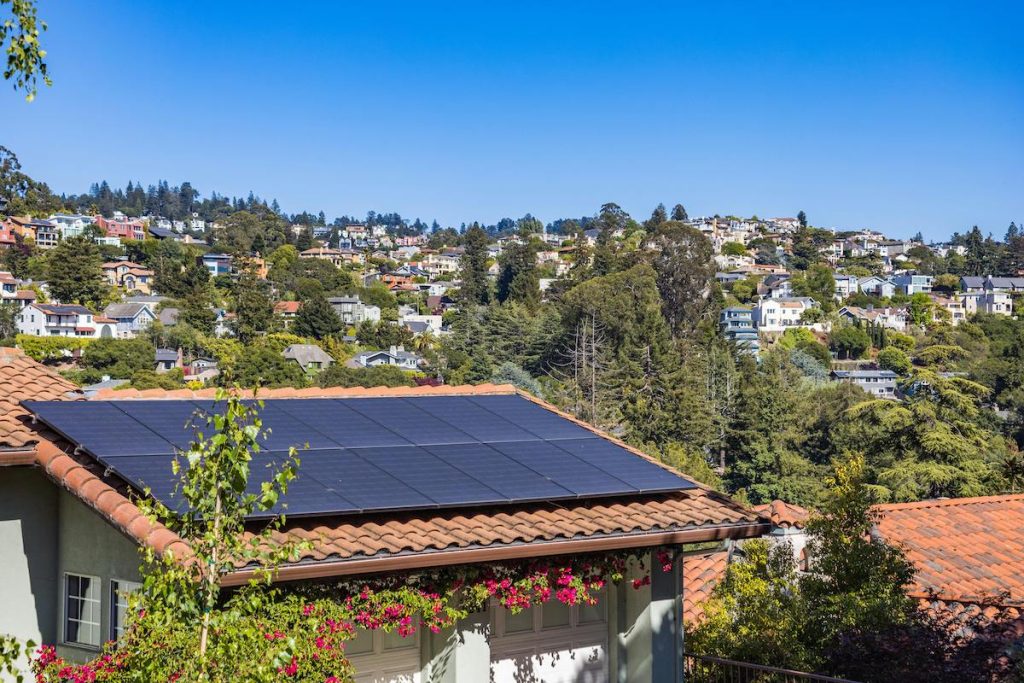
What is the IoT?
The Internet of Things—IoT for short—refers to a network of devices, vehicles, appliances and other physical objects that are embedded with sensors, software and network connectivity, allowing them to collect and share data (source: IBM).
An IoT device is any “smart object” that you might find in a smart home. A few examples include smart thermostats that better monitor your home’s temperature to maximize efficiency, wearables such as smartwatches or RFID-enabled clothing, to more complex machinery and transportation systems.
These smart devices are designed to monitor parameters such as temperature, air quality, energy consumption, humidity in the air, and machine performance. Going a step further, this data can be analyzed to identify any patterns or trends that can be used to further improve their operations.
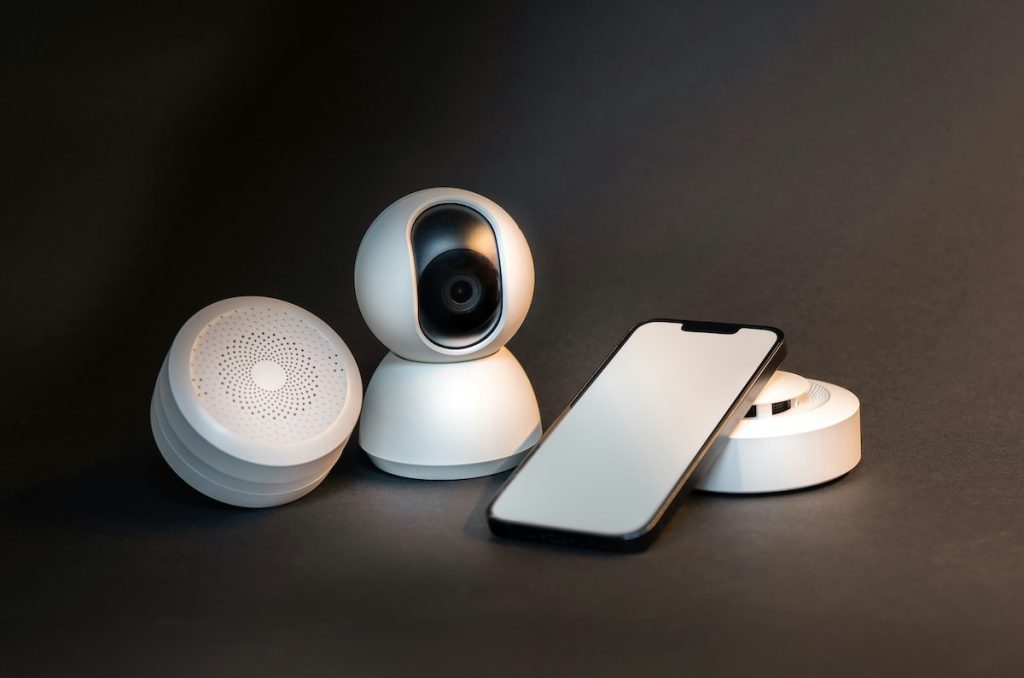
Why the IoT is important for solar:
Here are four of the biggest benefits IoT devices offer:
Increased efficiency
Individuals and organizations can use these smart devices to automate and optimize their day-to-day processes, which in turn improves both efficiency and practicality. Regular monitoring and maintenance is helpful in detecting (and resolving) any issues before they cause any damage or delays.
Enhanced decision-making
IoT devices offer important data that can be used to make better-informed decisions. As with anything, the more information you have available to you, the more confident you can be in your decision making. Businesses can look into this data and gain valuable insights to improve everything from operational performance to customer experience.
Cost savings
As with many forms of technology, IoT devices can help businesses spend less as well as increase profits. One example of this is an IoT device monitoring the energy usage of a home, therefore optimizing consumption and paying less on monthly utility bills. Aside from cost-savings, this optimization also supports a more sustainable lifestyle.
Improved customer experience
By analyzing data around customer behavior, businesses can make adjustments to improve the overall customer experience. One example of this can be seen with retailers who use IoT sensors to track the movements of their customers while in the store and then offer personalized recommendations based on their behavior.

What is a smart grid?
As explained on Arrow, smart grid technology is now ingrained in modern power distribution systems around the world. You’ll find that in many countries, power grids now integrate with smart grid systems that help with energy monitoring, optimizing distribution, and notifying customers whenever there’s an outage.
The more advanced solar panel modules, power inverters, and solar batteries become, the better one is able to monitor energy consumption and live more sustainably. In short, smart grids and renewable energy technologies work together in such a way that energy distribution is more efficient and the amount of carbon emissions released into the air (in the case of fossil fuels) is reduced.
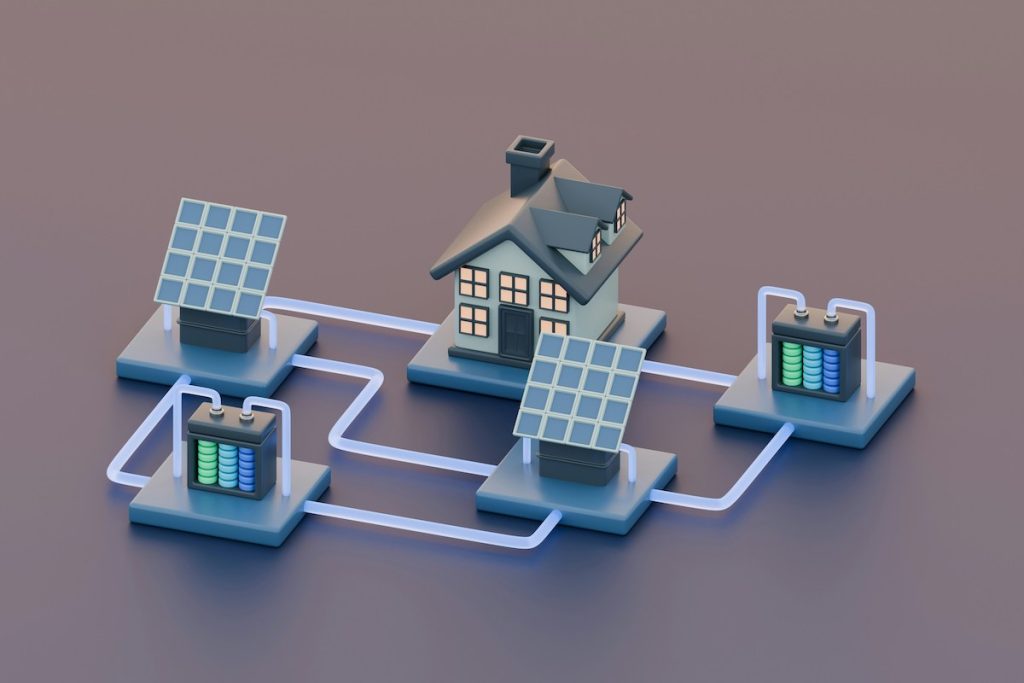
How to make your home ‘smarter’
Here are a few devices that will further enhance your energy consumption.
SPAN Panel
Using this smart electrical panel, you can monitor and adjust each and every circuit in your home, directly from your smartphone. After purchasing the hardware, you need to download their app and sync it with your panel. SPAN will then provide real.time insights into what areas of your home are expending the most (or least) amounts of energy and make adjustments accordingly. Users can also turn off power in specific areas in their home if and when they don’t need to be ‘on’ all the time.
Sense technology
Per their website, the Sense Home app provides users with unprecedented information about their home’s energy usage by measuring electric currents and voltage. These insights can then empower you to use the energy powering your home more efficiently and reduce both your electric bill and your carbon footprint. As a note, the Sense monitors should be installed by a professional, as there are specific safety measures that should be taken.
Smart thermostats
Investing in a smart thermostat–there are many of them on the market–helps you better control the temperature of your home as well as how much energy you’re consuming. Homeowners can adjust settings based on how many people are in their home at any given time as well as any personal preferences they might have. It’s a great way to reduce your heating and cooling consumption, in particular.
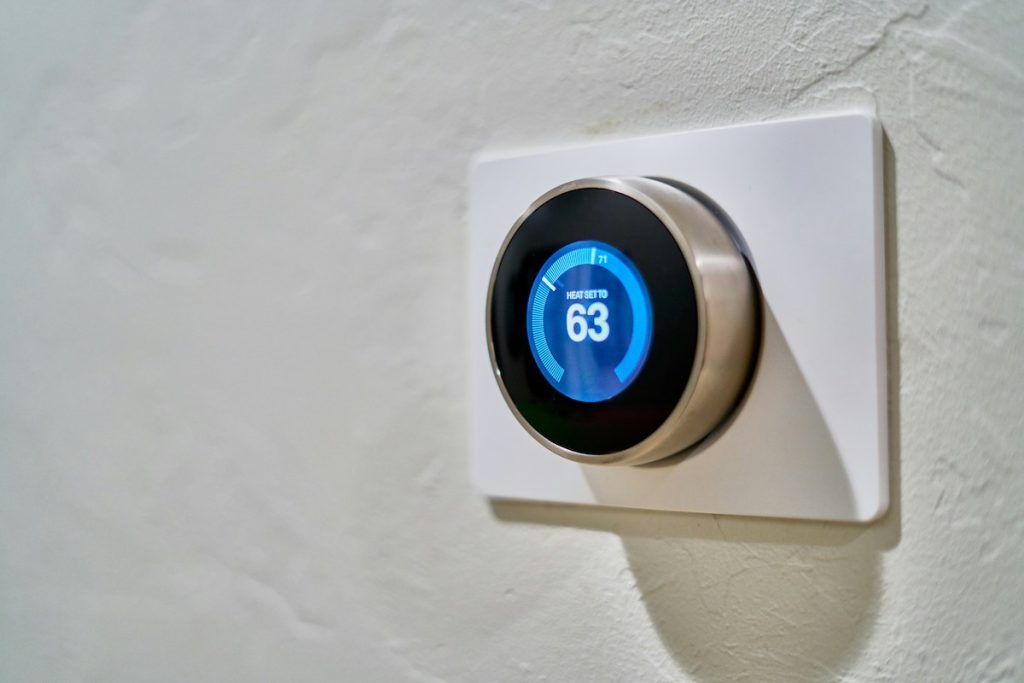
Other benefits of IoT-enabled capabilities
Below are a few additional benefits of smart grid technology.
Preventative maintenance
As its name suggests, preventative maintenance means that you can tackle issues before they arise. Even though solar panels are durable and designed to withstand pretty much every type of weather, things can still happen. Even with warranties, you’re still going to have to go a day or two–sometimes more–without a fully functioning system. Being able to prevent issues before they happen means that your equipment is always being monitored.
Increased optimization
Once a system is energized (also called ‘activation’), this means that a homeowner can start monitoring their system and tracking just how much energy their solar panels are producing. Homeowners who also invested in one or more solar batteries can also keep tabs on how much energy is being stored. They can then use that excess energy to power their homes during off-peak times of the day or during the night.
More accurate billing
IoT-powered smart grid technology ensures that energy consumption is being measured accurately. As a solar-powered home, there are certain benefits to staying connected to your local grid (which we recommend for safety reasons should a blackout occur).
Homeowners can further benefit from being connected to the grid by joining Virtual Power Plant (VPP) programs. As pv magazine explains, VPP programs coordinate home energy resources, dispatching power to the grid at key times of high electricity demand in exchange for compensation. This puts less pressure on the grid, which means fewer chances of a future blackout.
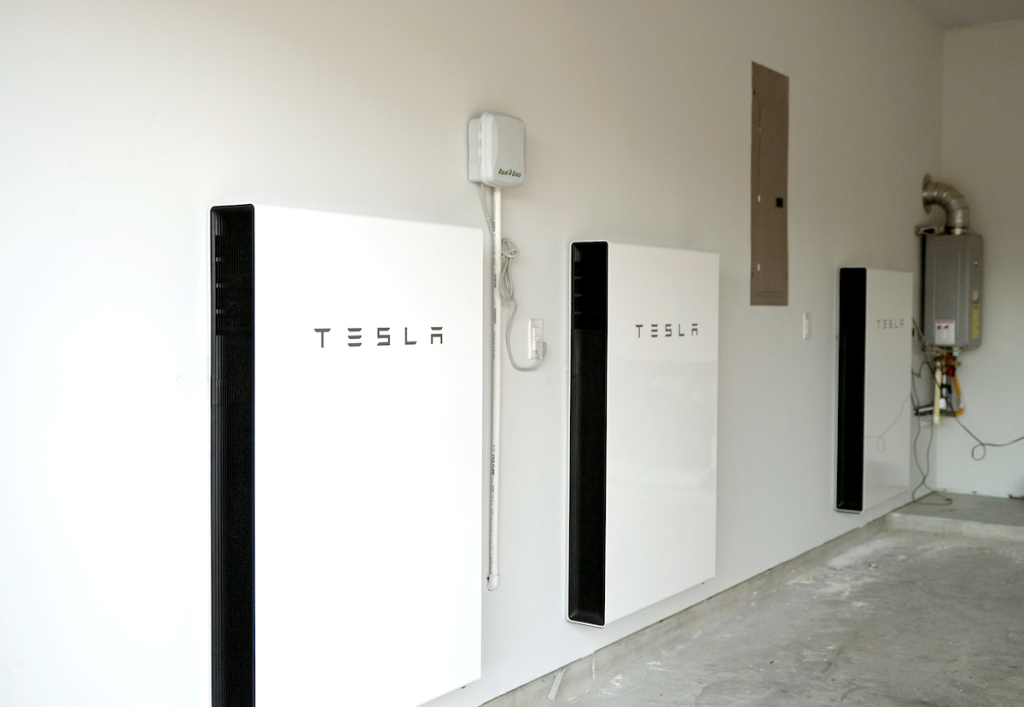
Final Thoughts
The Internet of Things is present in so many areas of our lives, from modes of transportation to monitoring home solar systems. Integrating solar energy into the IoT increases how efficient a solar system is, allows individuals and businesses to make education decisions based on data, and allows for preventive maintenance. You can make your home even ‘smarter’ by purchasing devices such as smart thermostats and smart electrical panels.
